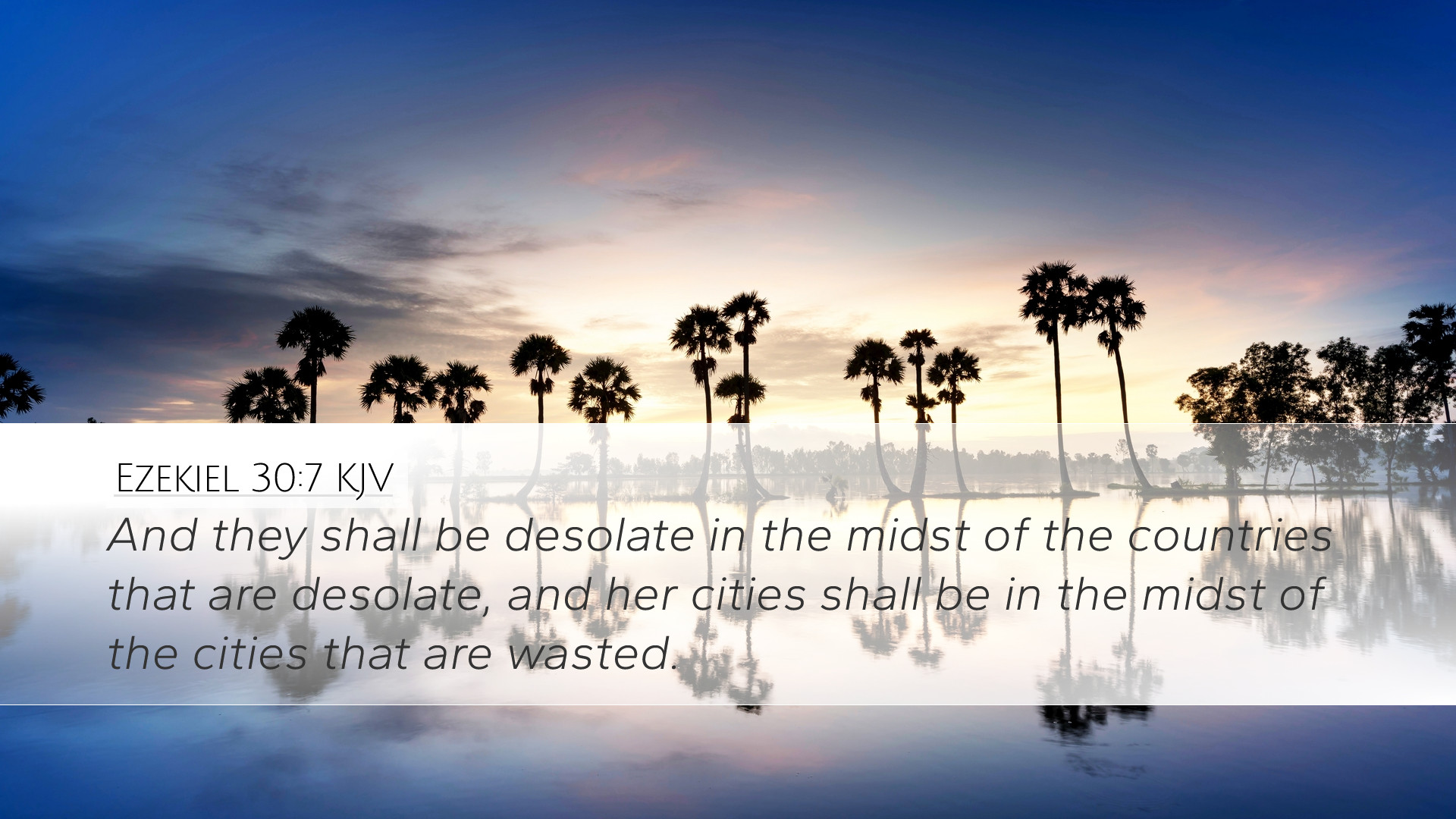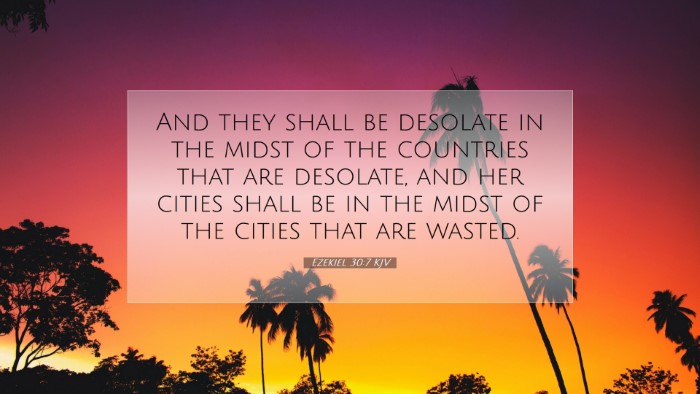Ezekiel 30:7 Commentary
Verse: "They shall fall by the sword, and shall be desolate in their cities; and they shall know that I am the Lord."
Contextual Overview
Ezekiel 30:7 is part of a larger prophecy concerning Egypt and its impending judgment due to its pride and idolatry. This section of Ezekiel is significant as it portrays the consequences of nations rejecting the sovereignty of God.
Thematic Insights
The themes present in this verse are multifaceted; they touch upon divine judgment, the fate of nations, and the proclamation of God's sovereignty.
1. Divine Judgment
Matthew Henry reflects that this verse serves as a declaration of God's judgment against Egypt. This judgment is not arbitrary but is a response to the persistent sin and idolatry prevalent in the nation. The phrase "they shall fall by the sword" signifies impending violence and conflict, emphasizing God's sovereignty over nations.
2. Desolation of Cities
Albert Barnes notes that the desolation referred to in the verse indicates the complete destruction that would befall the cities of Egypt. This desolation is not only physical but denotes spiritual emptiness as the nation turns away from God.
3. A Recognition of God's Sovereignty
Both Henry and Clarke emphasize that the end result of this divine judgment is that those affected will come to "know that I am the Lord." This proclamation serves to highlight the ultimate authority of God, which will be recognized even by those who have previously resisted Him.
Implications for Theological Reflection
This verse invites pastoral reflection on the nature of God’s dealings with nations and individuals. It serves as a warning against pride and reliance on human strength, which is ephemeral. The acknowledgment of God's sovereignty is a recurring theme in prophetic literature.
1. Sovereignty Over Nations
The verse underscores the reality that God governs the affairs of nations. The fall of Egypt serves as a reminder that no nation stands beyond God's reach or authority.
2. The Call to Repentance
Pastors can draw from this text to call individuals and communities to repentance. Just as Egypt faced judgment, so must contemporary cultures recognize the consequences of turning away from God.
3. Understanding Suffering
Students of theology might explore the nature of suffering as depicted in this verse. Why does God allow nations to face demise? It raises questions about the relationship between divine justice and mercy.
Conclusion
In conclusion, Ezekiel 30:7 serves as a stark reminder of the consequences of sin and the certainty of God's judgment. Yet, it is also an invitation to understand and embrace God's sovereignty. For pastors, theologians, and students alike, this verse provides rich material for reflection and teaching.
References from Commentators:
- Matthew Henry: Discusses the implications of divine judgment and the eventual recognition of God's authority.
- Albert Barnes: Focuses on the desolation of cities and the spiritual implications of turning away from God.
- Adam Clarke: Provides insights into the historical context and underscores the prophetic nature of Ezekiel's message.


